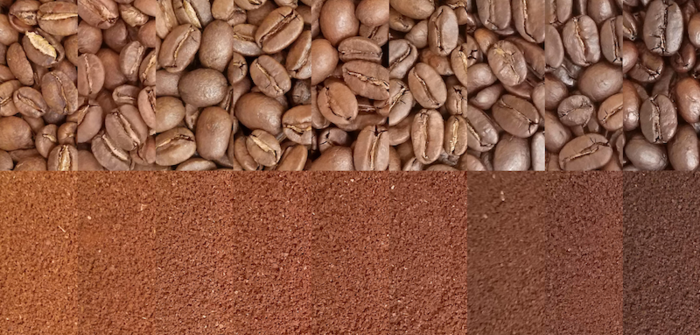
The five cups are all the same thing for this kind of cupping as that allows a uniformity score (do these all taste the same? If not, how many cups are different from the others?) and it gives a better chance of detecting if there are defects.
This one is pretty straightforward. I have an arrival sample on a coffee previously sold to me against a type sample and I'm just approving that yes, this is a close enough match to the type (the arrival sample is actually a little better than the type sample it was sold against).
I have a bunch of cupping spoons that the shop has purchased, but I never use them. Instead I use spoons that other people in the industry have given me over the decades.
UPS still thinks they're delivering my sister's computer on Wednesday, but it's close enough now that I wouldn't be surprised if it showed up tomorrow. I have everything at the shop already to upgrade that as soon as it arrives and she'll probably want to feed me a pizza after work while I help her get things set up software side.
It seems that all my Texas customers are getting in their orders now. All the boxes I'm sending today and all the boxes from the previous 1-2 shipping days have all been going to Texas. Kind of wish someone would open a shop with my stuff in Austin so I could save these people some shipping (especially the people having me send chai concentrate which is crazy expensive to ship).
For the 7th coffee I was hoping to do a couple different roasts, but the differences in cup character are so subtle across the tested range that there's no point. It seems to taste about the same no matter how you roast it (there are differences, but the intensity of flavors where those differences are detected is too low to try to build distinct products around).
The 5th coffee had amazing fragrance running through the grinder. This is another one where you just kind of need to decide where you want to balance the cup as it was nice throughout the range I'm testing. This is one that I like to use in blends so I tried to keep that use case in mind while making the decision.
- Software
- https://typica.us
- Send Money
- https://typica.us/payment.html
Author of Typica software for coffee roasters.
